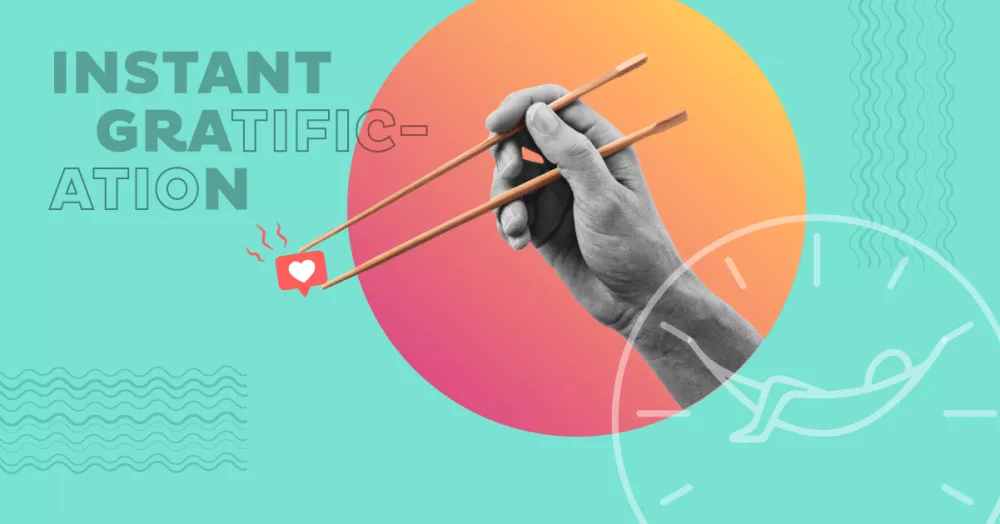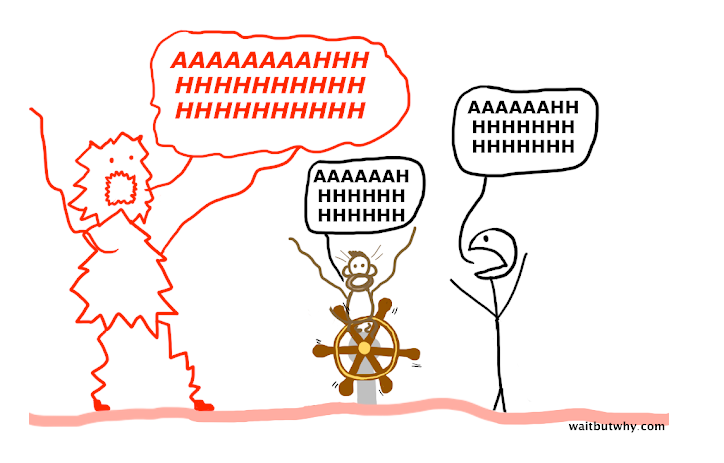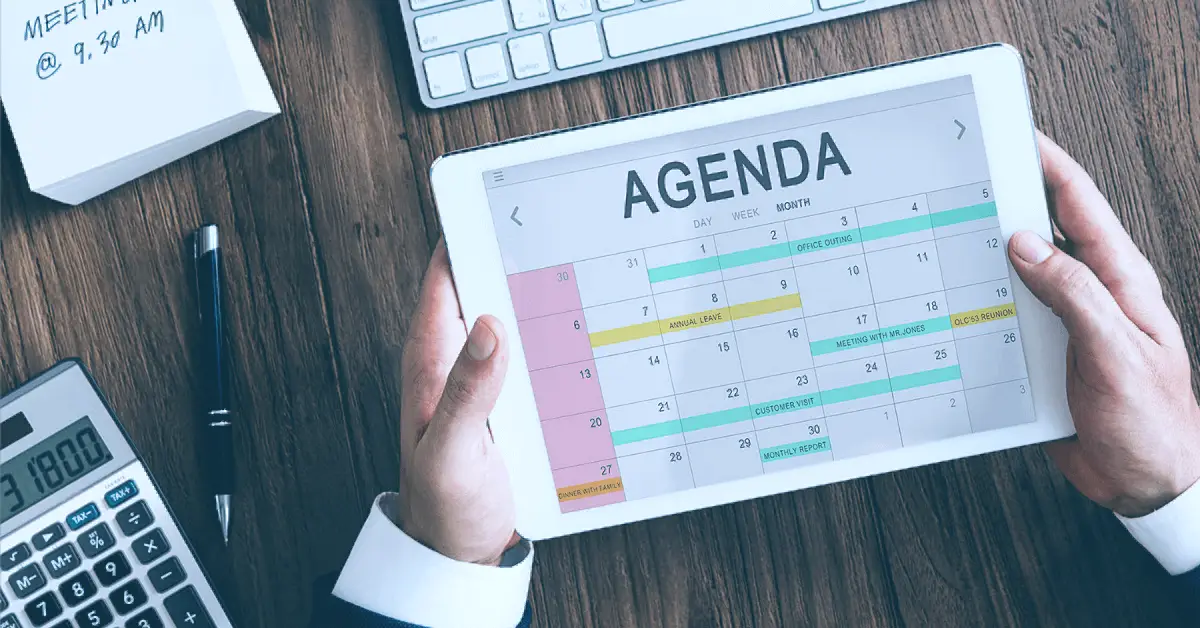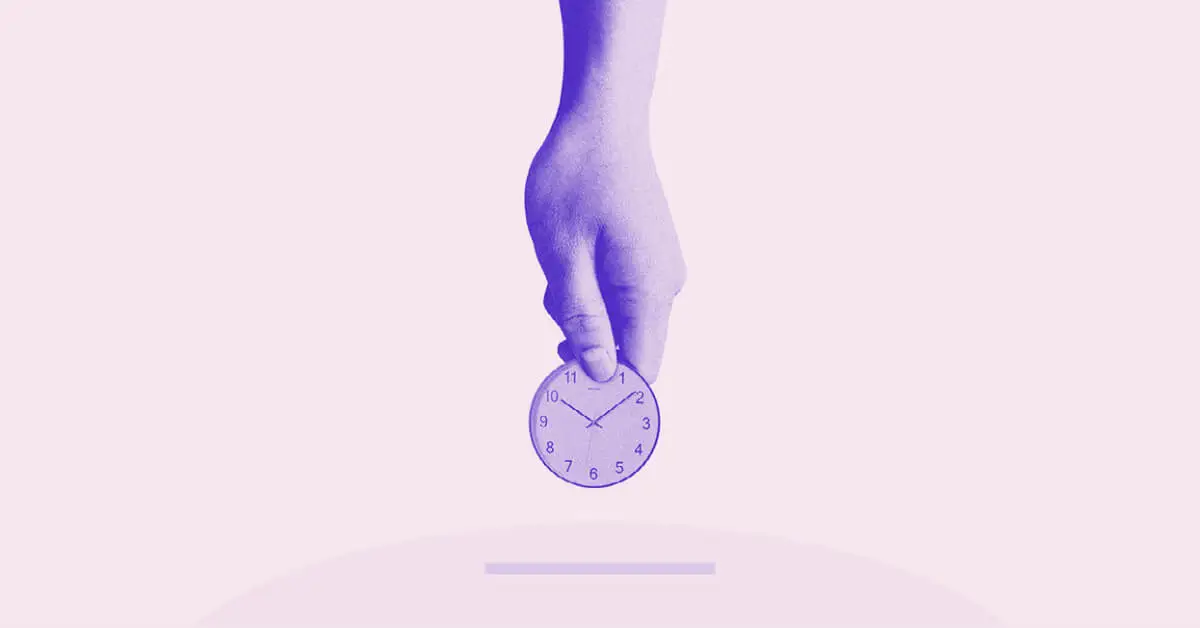The Temptation of Instant Gratification
Why our need to get everything now and putting things off for the last minute is killing our chances of success.

Deadlines.
Also known as due dates. A word that we all simply dislike. Some of us understand why we need deadlines, but we don’t necessarily like them.
Waiting.
We also dislike that word in varying degrees. It brings up feelings of mild irritation to downright discontent.
>
Both these words have an interesting relationship. We all have deadlines, but we don’t like them. So, we put off working towards them for as long as possible. Instead of putting in the hard work patiently and waiting for the outcome of our efforts, we seek experiences that will give us results right now. We seek feelings of gratification instantly. We overindulge in things that feel good now so we can numb the anxiety of looming deadlines and larger goals of life that we are waiting for.
Before we dive deeper, here is what we are going to cover:
- The Instant Gratification Monkey
- Why we procrastinate
- SpongeBob Procrastination Episode
- Why shouldn't we do things last minute
- The Marshmallow Experiment
- How to stop procrastinating
Let’s understand the real issue at play here. Why do we procrastinate, after all? We are all reasonable and understand logically that completing a task is for our own good. In fact, many of us are full-grown adults prone to bouts of procrastination. The place to start understanding procrastination is the instant gratification monkey. And yes, it is real. And you can buy it too.
The Instant Gratification Monkey.
This term was coined by Wait But Why host, Tim Urban in a post about understanding why procrastinators procrastinate. In a simple way, he explained what happens in our minds when we procrastinate on a task.
He explains that we all have two sides to us. One side is reasonable and wants us to do the right thing. The other side, the instant gratification monkey, wants to feel good at the moment. The instant gratification monkey prioritizes the short term even at the cost of the long term. For the most part, the instant gratification monkey in our heads wins over the reasonable part of our minds. Except, when it encounters the panic monster (yes, he is also available for purchase). The instant gratification monkey and the panic monster are nemeses. They can't both be in our minds at the same time. So, the moment we panic, usually right before a deadline, we tend to get back on track and get things done.

Time Urban illustrates this issue in a fabulous and fun way. You must read his article when you have a moment. And buy the instant gratification monkey and the panic monster if the ones in your head aren’t fun enough. This gives us a fair idea about what happens in our heads. But why does the instant gratification monkey win?
The issue of procrastination is also nuanced. There are several reasons why we don’t do what we know we should do.
Why we procrastinate:
- It feels good. It literally produces happy hormones. Let’s all admit it. That chocolate cake, the night out with friends, the binge-watching of that episode, all made you feel good. Not just that, some of that instant gratification also builds good memories. However, we tend to overlook the cost of these instant gratification acts over time. They add up very quickly.
- It avoids tough choices. Many times, finishing a task means making a tough choice. Such as paying that bill, deciding the name of your company, or deciding between your top schools. Sometimes we are just running away from the decisions.
- It appears to cost less. We always outweigh the cost of instant gratification versus the cost of persistence and hard work. What we feel right now is always more important than what we will feel in the future. Now seems more tangible, the future feels fuzzy. And how do you assign any value to fuzzy?
- It gives certainty. As humans, we crave certainty. When we give in to instant gratification, we are also giving into certainty – we know we will get what we want, right now. When we take the long-term view and decide to not give in to instant gratification, we don’t always know when we will experience the fruits of our labor. For instance, you are trying to start a business, a side hustle. You’ve decided to put 2 hours into the business today. But your friends just invited you to an impromptu night out. A night out with friends will make you feel good now. But you have no idea how long it's going to take for your business to succeed (if at all). The ambiguity tips the scales in the favor of instant gratification.
SpongeBob Procrastination Episode.
We know this is unconventional. But SpongeBob here truly illustrates the dilemma. When we have a deadline, we remember every little thing that we just don’t need to do. We do seemingly unimportant things to avoid getting to work.
Let's take a closer look at this episode. SpongeBob tried a lot to avoid the deadline. And in the process, he convinced himself that they are actually important. Some of the things he did are ridiculous, even for SpongeBob:
- He spent time finding the perfect pencil.
- Overfed his snail Gary and watched him eat each bite.
- Spent ridiculous amounts of time deciding between what type of bread to use for his sandwich.
- Spoke to the mailman and asked him unimportant questions.
- Had a conversation with his pants. Really.
He put off writing the paper till there were just 5 minutes left to the deadline. Everything he did, gave him some sense of achievement, however little, at the moment. It also distracted him from the paper he was supposed to write.
So, SpongeBob completed his task, right? He wrote the paper, after all. Even though it was last minute. So why is that so bad? Why not wait for the last minute if that propels you into action and you can get things done?
Unfortunately, when we do things at the very last moment, it kills our chances of success.
Here is why doing things last minute does not work:
- Quality suffers. Let’s face it. When we do things last minute, we feel like we are uber-focused and in the zone. But really, our work lacks the depth and quality that a well-thought-out work would produce. We simply cannot dive into the details, and we skim through the tasks. We are not able to give it the attention it deserves.
- Builds stress. You may call this good stress because it's helping you do something quickly. But this stress is anything but good when you are in the habit of doing everything last minute. Over time, it builds up and affects all aspects of life. We tend to burn out very quickly and our health takes a turn for the worse as a result of living on the edge constantly.
- Transient satisfaction. The feeling of work well done (even if it meets the fate of SpongeBob’s work) is incomparable to anything you put together because you just had to do it in time. The jubilation of making the deadline is very different from the contentment of work done well. When we put time and effort into the work, it stays with us for longer and even if the project goes sideways, we learn a lot from it.
- Sense of guilt. Say you have to turn in that project tomorrow. But you spent hours binge-watching TV shows and then just scrolling through social media. While you did both of those things, you were subconsciously aware that you were wasting time (and likely chiding yourself for being distracted). Even though you were doing something you enjoy usually, you were experiencing guilt, and you just did not feel the instant gratification you were looking for in the first place.
- Does not account for slip-ups. If everything you do is last minute because you thrive on it, you are likely to miss deadlines often. Because life does not go according to plan. There are several derailments and if you are relying on the pressures of the last minute, you tend to slip up more often than you care to admit. Even SpongeBob was huffing and puffing, trying to get there in the nick of time.
So even though we think that doing everything last minute works for us, that’s likely not the case. Resisting the urge to procrastinate and more importantly, resisting instant gratification is extremely important throughout our lives. It builds a character of grit and perseverance. And that is a fact. Let’s take a closer look at the longest study on instant gratification.
The Marshmallow Experiment
Stanford did one of the longest experiments on delayed gratification in the 1960s and 1970s. They wanted to see if preschoolers can resist instant gratification, and if so, what strategies did they use to do so. They offered them two choices. Get one marshmallow now or, wait for 15 minutes (in presence of the marshmallow, alone) and get two of them. Many children ate the marshmallow as soon as the facilitator left the room and left them alone with the marshmallow.
Some students, however, were able to defer or delay the gratification. They did this in various ways, closing their eyes, hiding, singing songs, or simply by looking away. The experimenters continued to track these students over the years. They noticed that children who were able to delay gratification were more likely to get better grades, were more confident and got into less trouble overall even as teenagers. They also had healthy relationships and higher self-esteem.
Productivity means different things to all of us. While most of us think of productivity as powering through the task list, that’s not true.
lifeism.coAs illustrated by the study, there is plenty of evidence to back up that those of us who can think long terms and avoid procrastination have a better chance of success. Instant gratification just leads to distractions. In the disillusionment of now-gratification, we make poor decisions. Moments turn into days, weeks, months, and years. We live out our lives in these years, wondering where all the time went. We miss out on doing things that we truly wanted. Left with a bitter after taste of resentment and regret.
So how do we stop procrastinating and seeking instant gratification? How can we get out of the vicious cycle of instant gratification and get on to achieving our long-term goals?
Are you struggling with anxiety or brain fog every now and then? Try these simple tips to calm yourself and change your mood.
lifeism.coHere are some tips to stop procrastinating:
- Acknowledge it. Acknowledge that you are facing issues with procrastination and instant gratification. You are not able to get things done and distractions are getting in the way. The beginning of every solution is facing the reality.
- Understand why. Now that you know that there is a problem and understand the full scope of it, take the next step. Understand why you are distracted. Why do you want to make that purchase now? Why are you scrolling through Insta feeds? We often do things mindlessly and lean towards instant gratification when we are not acknowledging our feelings. What are those uncomfortable feelings that you are trying to drown out?
- Create a priority list. What is important to you in your life? Family? Friends? Career? Financial freedom? Health? Doing this exercise will help you focus on the big picture. Put the list up where you can see it. When you catch yourself being distracted, go over the list again. Remind yourself of your priorities.
- Take time off. Just restricting yourself from what you want to do is not the right answer. Take time off and allocate it to doing whatever you want. You can watch TV, spend hours on social media or just hang out with friends. Give yourself the time and space to do the things that make you feel good. Do what you want, but not mindlessly. Do it mindfully.
- Get help. Humans are social beings. We tend to work better together. If you are not able to solve the problem on your own, ask for help from family and friends. And if you are facing depression and anxiety, then get professional help. This may be difficult, especially if you've never done it before, but just think about it. A professional can help you get your life back on track. S/he can help you live a life that you truly deserve.
- Try to relax. Many times, we try to suppress our anxieties by seeking instant gratification. It is so much easier to drown out that feeling of discontent at work by buying yourself an expensive watch that you so did not need. Take deep breaths. Learn to relax. Try out these calming simple strategies to start with.
- Consider the consequences. When you are distracted, think about the consequences of your action (or inaction). Eating that cake will deviate you from the hard work you've put in for months. Not working on that paper will lower that hard-earned GPA. When you feel like you are getting distracted, just think about the consequences of not reaching your goal. It helps to go a step further and imagine what your loved ones will feel. Will you let someone down? Someone who has believed in you for years and helped you get through tough times?
- Use reinforcements. We all work in different ways. If you are more motivated by rewards, then set up a small victory treat every step of the way. If negative reinforcements work better for you, then donate a certain amount to charity every time you don’t hit the gym.
There you have it. Now before you scroll to another story or get distracted by another email, try to put some of these strategies in place. Take small steps now so you can build on them over time. Let us know in the comments what strategies helped you most. You can read more exercises on delaying gratification here.










Comments
Great article!
The procrastination part is something I truly understand from my own life experiences
Eye opener